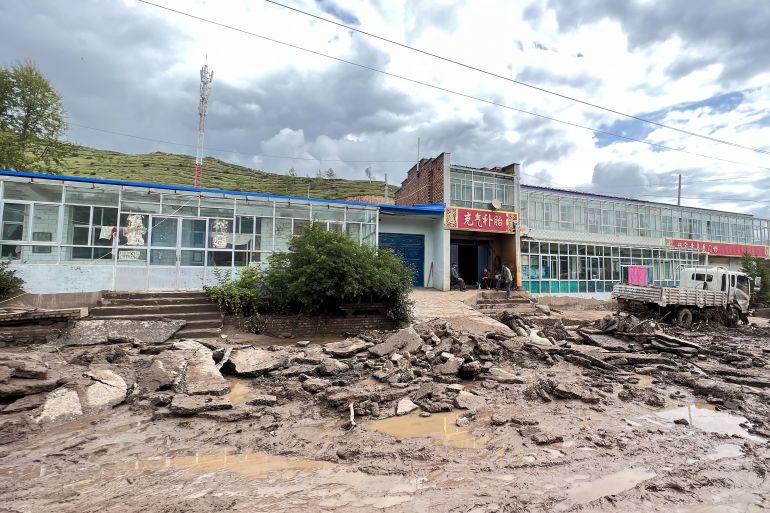Flash floods in western China kill 16, leave 18 missing
Deluge wreaks havoc in Qinghai province amid a summer of extreme weather in China.

At least 16 people were killed and 18 others were missing after a sudden rainstorm in western China triggered a landslide that diverted a river and caused flash flooding in populated areas, Chinese state media has reported.
Rescuers, who earlier reported 36 people missing, had found 18 of them by early Thursday afternoon local time, state broadcaster CCTV said in an online update. The Wednesday night disaster affected more than 6,000 people in six villages in Qinghai province, CCTV added.
Keep reading
list of 4 itemsChinese factories close as drought hits hydropower
Temperatures top 40C in China as heatwaves spread
China hit by year’s first typhoon Chaba, record rains forecast
A video feed of the aftermath published by state media showed roads covered in mud, uprooted trees, damaged homes and rescue workers carrying shovels.
Emergency authorities described the flash flooding in Qinghai’s Datong county as a “mountain torrent”. Such torrents generally result from heavy squalls in mountainous areas. Water running down the mountain can turn gullies or streams into raging rivers, catching people by surprise.
Seven people died last weekend from a mountain torrent in southwestern China’s Sichuan province.
Summer of extremes
Elsewhere in Sichuan and other provinces, crops are wilting and factories have been shut down as drought cut hydropower supplies and high temperatures raised electricity demand.
China is facing heavy rains and flooding in some parts of the country this summer and extreme heat and drought in other regions. State media has described the heat and drought as the worst since record-keeping started 60 years ago.
More than a third of weather stations in the country have recorded extreme heat this summer, with 262 of them reaching or surpassing previous records, according to the China Meteorological Administration.
The Ministry of Finance said on Thursday that it would make 420 million yuan ($61.83m) of emergency funds available to help local governments provide food and drought relief.
Scientists say extreme weather across the world has become more frequent due to climate change, and will likely grow more intense as temperatures rise.